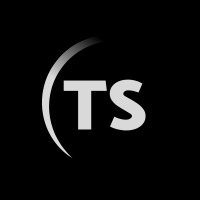Don't miss our holiday offer - up to 50% OFF!
The Best expert interview in 2024
Writing an expert interview article requires thorough preparation, engaging questions, and the ability to present insights concisely. Below is a general guide followed by a sample expert interview that spans about 1,000 words.
How to Write a Great Expert Interview Article
- Preparation:
- Identify a clear topic.
- Research your expert’s background and expertise.
- Craft thoughtful questions that reflect a mix of the expert’s experience and the audience’s interests.
- Structure:
- Introduction: Present the expert, their credentials, and why they’re relevant to the topic.
- Questions & Answers: Use a mix of open-ended and specific questions

- Conclusion: Summarize key takeaways and provide actionable insights.
- Tone:
- Keep it conversational but professional.
- Balance the expert’s voice with a clear narrative.
Sample Expert Interview:
Title: Unlocking the Secrets to Successful Leadership: Insights from Dr. Maria Cole
In an era where effective leadership is crucial for organizational success, Dr. Maria Cole, a globally recognized leadership coach and author of “Leading from Within,” shares her expertise. With over two decades of experience working with Fortune 500 companies, Dr. Cole has seen leadership evolve and offers valuable insights for today’s leaders.
Introduction
Q: Dr. Cole, thank you for joining us. Could you start by telling us a little about your background and what drew you to leadership coaching?
A: Absolutely, and thank you for having me. My journey began in corporate HR, where I noticed a consistent gap: talented individuals were promoted into leadership positions without the tools to succeed. I realized that leadership is both art and science. Over time, I transitioned into coaching and consulting, focusing on building emotionally intelligent, adaptable leaders.
On Leadership in Modern Times
Q: Leadership has evolved dramatically over the past two decades. What are the key traits of an effective leader in 2024?
A: Great question. The leaders of today need three key traits:
- Empathy: The ability to understand and relate to team members fosters trust and engagement.
- Adaptability: The pace of change, especially with AI and remote work, demands flexibility.
- Vision: Amid uncertainty, leaders must inspire their teams with a clear sense of purpose.
The best leaders balance these traits with a willingness to learn and grow themselves.
Challenges in Leadership
Q: What do you think is the most significant challenge leaders face today, and how can they overcome it?
A: One major challenge is managing a multigenerational workforce. Gen Z employees, for example, prioritize purpose and flexibility, while older generations may value stability and structure. Leaders must find ways to bridge these preferences.
The solution lies in personalized leadership: understanding the unique motivations of each team member. This approach builds cohesion and reduces conflicts.
The Role of Technology in Leadership
Q: Technology is transforming workplaces. How can leaders use technology effectively without losing the human touch?
A: Technology is a double-edged sword. Tools like AI can enhance decision-making and efficiency, but over-reliance can erode personal connections. Leaders should use technology to complement, not replace, human interaction. For example, virtual team meetings are great, but face-to-face moments—whether in person or via video—remain crucial for building relationships.
Practical Advice for Aspiring Leaders
Q: What advice would you give someone aspiring to step into a leadership role?
A: Start by developing self-awareness. Leadership begins with understanding your strengths, blind spots, and emotional triggers. Engage in regular feedback sessions, seek mentorship, and don’t be afraid of failure—it’s a great teacher.
Also, learn to listen. Many new leaders feel pressured to have all the answers, but often, the best solutions come from empowering your team to collaborate and innovate.
On Gender and Leadership
Q: As a prominent advocate for women in leadership, what steps can organizations take to promote gender equity?
A: Organizations need to go beyond surface-level initiatives. They should focus on building inclusive cultures where women feel supported in taking on leadership roles. Mentorship and sponsorship programs are particularly effective.
Additionally, leaders need to challenge biases—both conscious and unconscious. Representation at every level matters, so set clear diversity goals and hold leadership accountable.
Leadership Styles and Trends
Q: You’ve worked with leaders across industries. Are there leadership styles that you believe are particularly effective right now?
A: I’ve seen a shift toward servant leadership, which prioritizes the needs of the team over individual ambition. This approach resonates in collaborative, innovation-driven environments.
Another emerging trend is authentic leadership—leaders being open about their challenges and vulnerabilities. Authenticity builds trust, especially in an age where transparency is highly valued.
The Future of Leadership
Q: Looking ahead, what do you see as the future of leadership?
A: The future will require holistic leadership—leaders who are not just task-focused but also consider the emotional and mental well-being of their teams. Climate change, social justice, and technological ethics will also become critical leadership domains.
Leaders will need to act as bridge-builders, fostering collaboration across cultural and organizational boundaries. Continuous learning will be non-negotiable.
Closing Thoughts
Q: Any final thoughts for our readers?
A: Leadership is a journey, not a destination. It’s about making a positive impact on others and creating environments where people can thrive. Whether you’re leading a team of two or two thousand, stay curious, stay humble, and always keep learning.
Conclusion
Dr. Maria Cole’s insights remind us that leadership is a dynamic, ever-evolving skill. Her emphasis on empathy, adaptability, and authenticity serves as a guide for leaders striving to succeed in a rapidly changing world.
For more of Dr. Cole’s insights, check out her book “Leading from Within” or follow her on LinkedIn.
Would you like help tailoring this to a specific topic or industry?


